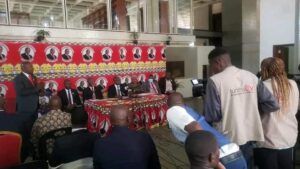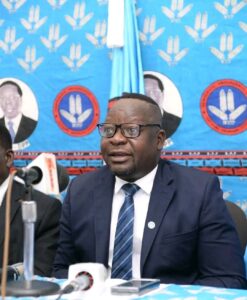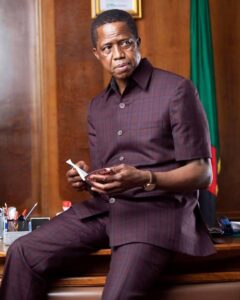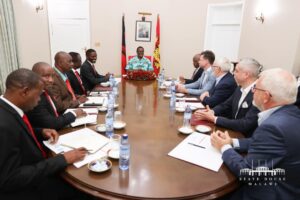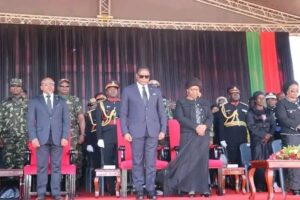Roger Federer pays visit to Malawi to hand over educational tablets
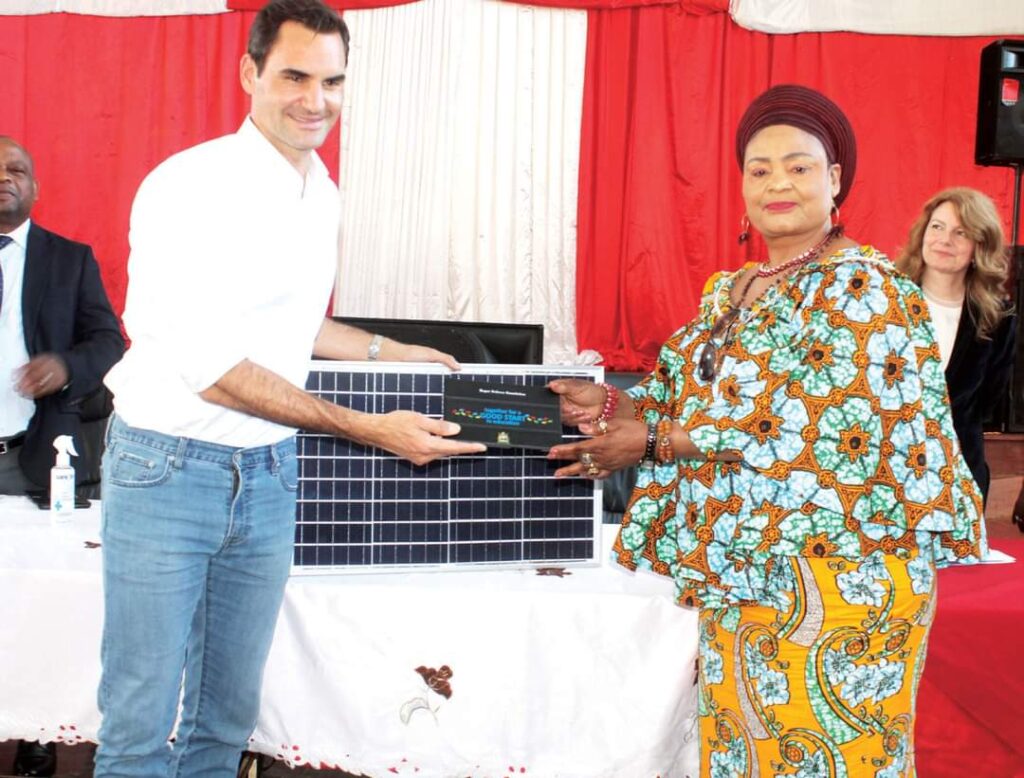
The Swiss Superstar, Roger Federer has returned to Southern Africa with a visit to Malawi that has seen him hand over 3000 tablets meant to aid early childhood development.
Federer’s charitable foundation focuses on helping some of the poorest children in the world access education.
Malawi’s Minister of Gender, Community Development and Social Welfare, Patricia Kaliati received the tablets and solar panels from Federer this week.
Kaliati hoped that the tablets would aid Malawi’s children in school preparedness.
“You will also find on the Early Learning Kiosk a Toolbox with an App on how to build a natural playground with locally available material together with the community as well as how to make toys and learning material and both are essential for an age appropriate learning environment,” Kaliati added.
The equipment is intended to be used to establish early learning kiosks in learning centres across Malawi.
null According to the latest World Bank estimates over half of Malawians live in poverty and the adult literacy rate hovers around 60 per cent.
Speaking at the handover Federer said that the children of Malawi deserve a quality education.
The Swiss superstar announced this week he would return to the court for the Swiss Indoor Championships
Federer believes that investing in early education is investing in a better future for the country.
Fyness Dickson Phiri of Yankho ECD thanked Federer and his foundation for their donation but said there was still much to be done to improve education in Malawi.
null The Roger Federer Foundation runs projects in Southern African countries Lesotho, Namibia, South Africa, Malawi, Zimbabwe and Zambia.
“Education is a fundamental human right and the fourth sustainable development goal of the UN,” the Foundation state.
“Every human being has the right to inclusive and quality education in order to make the most of his/her potential.
“Furthermore, both the international community and researchers agree that many other human rights can only be realised and respected if a sufficient standard of education is guaranteed.
“In Africa, there are two main problems affecting education. On the one hand, in some countries, there are still too many children without access to primary education.
“On the other hand, the quality of education offered is in most cases insufficient. In relation to the first point, countries in southern Africa have made up much ground over the last years and have a school enrolment quota equating to the global average.
“Far too often, however, schooling ends prematurely. Schools lose on average 40% of their pupils before the fourth year. Minimum learning objectives are far from being achieved due to, among other things, the massive shortage of teachers.
“According to UNESCO studies, 58% more trained teachers are required. The reasons for the lack of adequate education on the African continent are manifold and best illustrated in the annual report of UNO’s “Education For All” initiative.
“To improve the quality of education, a package of measures is required, which the Roger Federer Foundation promotes in all of its programmes.”
Fyness Dickson Phiri of Yankho ECD thanked Federer and his foundation for their donation but said there was still much to be done to improve education in Malawi.
null The Roger Federer Foundation runs projects in Southern African countries Lesotho, Namibia, South Africa, Malawi, Zimbabwe and Zambia.
“Education is a fundamental human right and the fourth sustainable development goal of the UN,” the Foundation state.
“Every human being has the right to inclusive and quality education in order to make the most of his/her potential.
“Furthermore, both the international community and researchers agree that many other human rights can only be realised and respected if a sufficient standard of education is guaranteed.
“In Africa, there are two main problems affecting education. On the one hand, in some countries, there are still too many children without access to primary education.
“On the other hand, the quality of education offered is in most cases insufficient. In relation to the first point, countries in southern Africa have made up much ground over the last years and have a school enrolment quota equating to the global average.
“Far too often, however, schooling ends prematurely. Schools lose on average 40% of their pupils before the fourth year. Minimum learning objectives are far from being achieved due to, among other things, the massive shortage of teachers.
“According to UNESCO studies, 58% more trained teachers are required. The reasons for the lack of adequate education on the African continent are manifold and best illustrated in the annual report of UNO’s “Education For All” initiative.
“To improve the quality of education, a package of measures is required, which the Roger Federer Foundation promotes in all of its programmes.”

